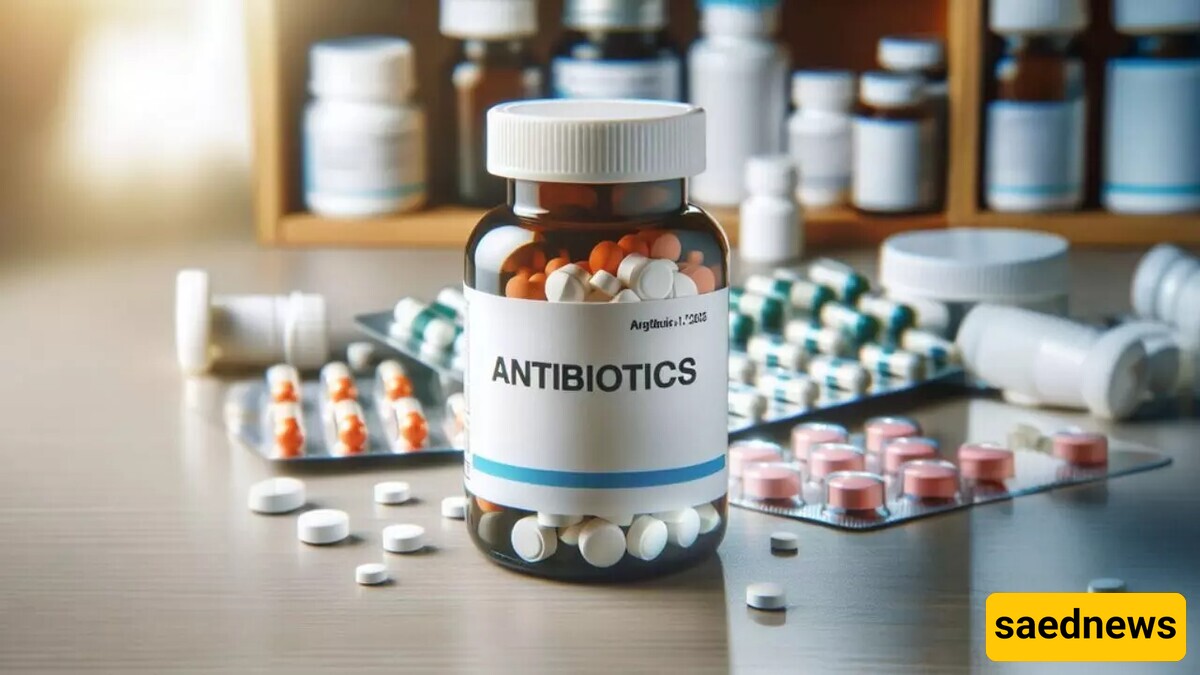Self-medicating with any drug is harmful to your health. One category of drugs often taken without proper guidance and having dangerous side effects is antibiotics.

According to the family magazine service of Saed News, we have all heard the advice to never take antibiotics without consulting a relevant specialist and to avoid consuming them in large quantities. Excessive and self-prescribed use of antibiotics comes with numerous side effects.
For many, self-medication is not a concern as they believe that visiting a doctor is time-consuming and expensive. However, they are unaware that self-medication has many side effects and is very harmful. These individuals tend to take pills like candy, oblivious to the serious consequences of improper use.
Medications such as painkillers, cough syrups, laxatives, antibiotics, anti-allergy drugs, vitamins, and even antacids are sold over-the-counter and can be easily used for self-medication. While antibiotics are undoubtedly crucial for fighting infections, overusing them makes it difficult to assess their effectiveness in combating diseases, necessitating their appropriate dosage.
Serious and Dangerous Side Effects of Self-Medicating with Antibiotics
What happens if we take antibiotics without a prescription? The answer is antibiotic resistance. This means that harmful bacteria responsible for the infection will not be eliminated. Therefore, to ensure recovery, antibiotics must be taken in the correct dosage and as prescribed by a doctor.
Self-medicating with antibiotics not only kills harmful bacteria but also good bacteria, leading to infections and putting the body at significant risk. Hence, it is essential to consult a medical professional before taking antibiotics. Self-medication is not only incorrect but also very dangerous as you do not know the correct timing and dosage for taking antibiotics.
People often self-medicate with antibiotics because they notice some initial benefits. After observing improvement, they consider taking more antibiotics in higher doses. However, increasing the dosage should not be done by the patient but rather upon the recommendation of a specialist, who assesses the patient's health condition and prescribes the necessary amount.
Doctors can determine whether your illness is bacterial or viral. They perform various tests to identify the nature of the bacteria causing the infection. Based on these tests, the appropriate antibiotic is prescribed, ensuring the correct relationship between the diagnosed infection and the prescribed medication, which only a medical specialist can evaluate.
Self-medicating individuals often make mistakes in completing the prescribed course of antibiotics. You should not take too much or too little of the antibiotic, as it will have no effect on the harmful bacteria and will only harm your body. You may think you have recovered after taking a few antibiotics, but not completing the prescribed course can be damaging. A balance between high and low doses must be achieved, which the doctor's prescription helps to establish.
Another consequence of not taking the correct dosage is that the next time you need antibiotics to fight an infection, they may not work. Excessive use of antibiotics causes resistance to bacterial infections, while insufficient use does not eradicate the infection.

Important Tips for Using Antibiotics
Inform your doctor: If you do not feel well while taking antibiotics, notify your doctor immediately and avoid further use.
Ask your doctor: If you believe you do not need antibiotics, ask your doctor if their use is necessary. During your visit, explain why you think you do not need antibiotics and ask them to evaluate your condition.
Be self-aware: It is crucial to understand the conditions that necessitate antibiotic use and avoid those situations.
Get adequate rest: If you are ill, your doctor will advise you to get enough rest and avoid unnecessary activities, as they may worsen your condition.
Make dietary changes: To prevent antibiotic use, try altering your diet. Home-cooked and healthy foods may help prevent the need for antibiotics.

